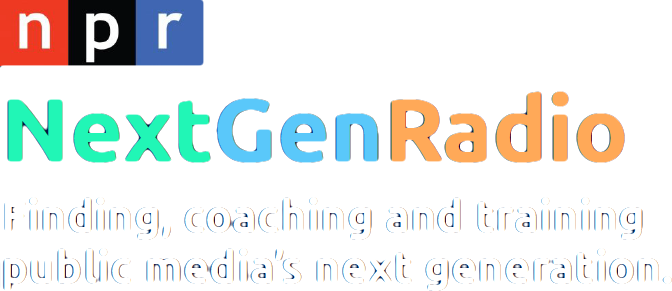NextGenRadio
@ Oregon Public Broadcasting“In the Time of COVID-19”
Angel Rosas reports for NPR’s Next Generation Radio. Veterinarian Dr. Katy Felton has been helping animals for more than 12 years. But when the pandemic hit, she was no longer able to provide the same level of support and care. Along with her staff at Grateful Heart Veterinary Hospital, she is now navigating a new normal.
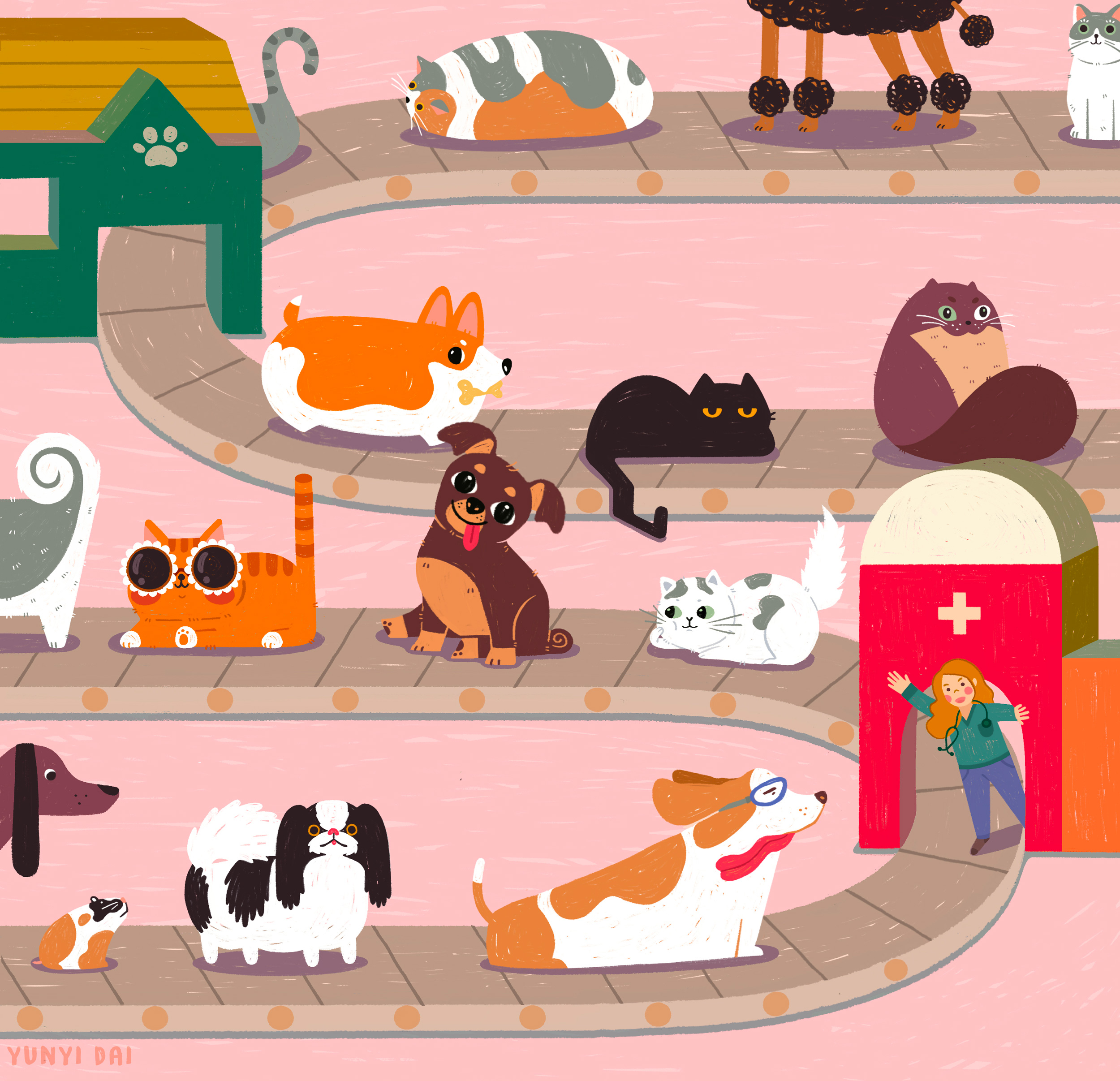
Pets in a pandemic
By Angel Rosas
How a Portland veterinarian continues to care for her furry clientele
Veterinarian Dr. Katy Felton’s love for animals is only matched by the care and sympathy she has for her four-legged clients.
“I grew up in a small town in Oregon, and we had just enough land that we could rescue a lot of critters. So we always had two or three dogs and a handful of cats and I had rabbits and rescued a couple of ducks, you name it — guinea pigs, all of it,” Felton said.
Dedicating years to veterinary school, Felton’s emotional connection to animals is more than skin deep.
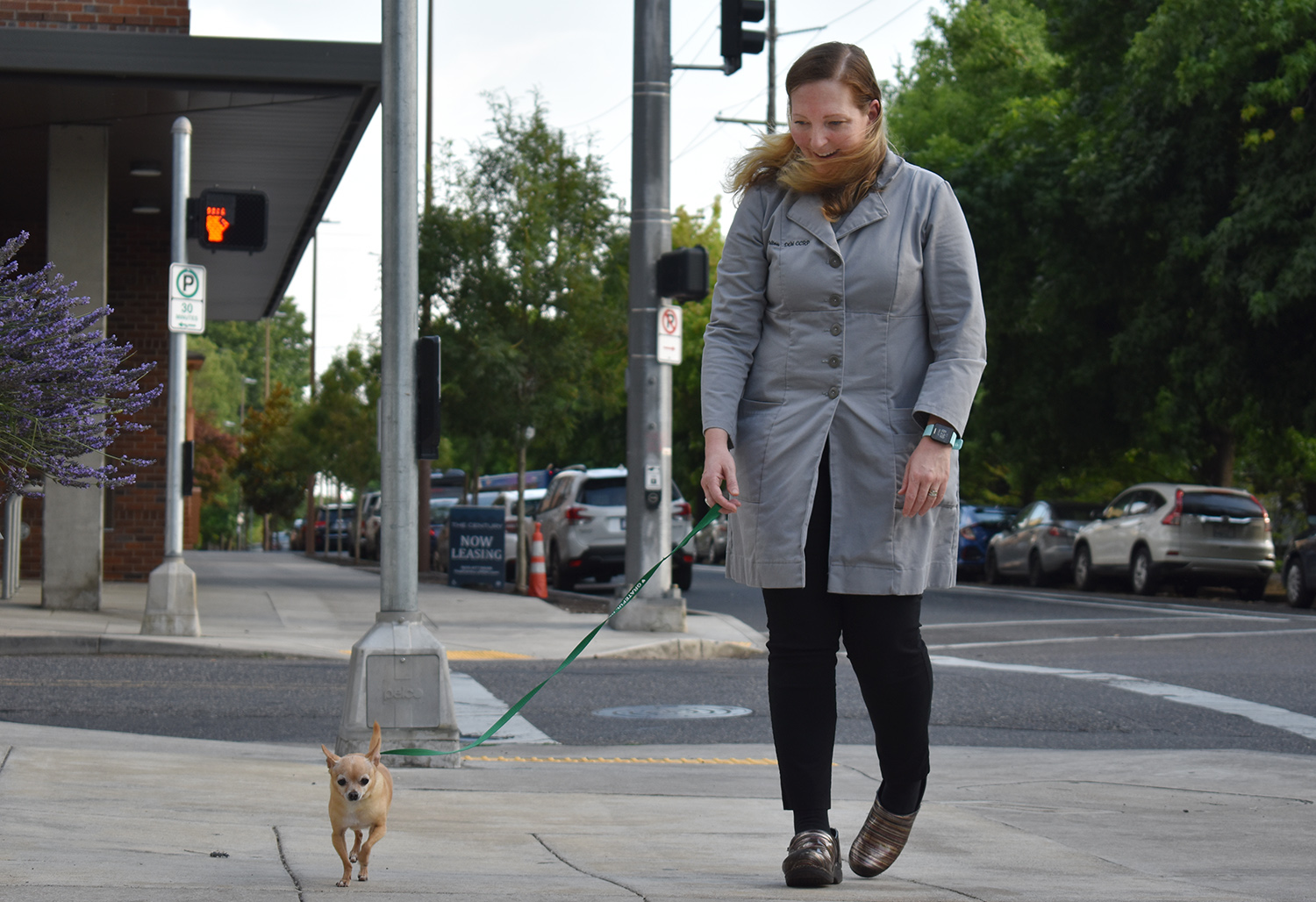
“I have a koi fish [tattooed] on my back, from the back of my neck all the way down. I have two of my cats that were a bonded pair that were with me all through college and vet school. Now they’re both in heaven.”
Felton has been a practicing vet for more than 12 years and in January 2020, she opened her own practice, the Grateful Heart Veterinary Hospital. Opening a new business at any point in time is hard, but when the coronavirus pandemic hit, her ability to provide her usual service and support was challenged. Felton and her staff had to navigate stringent safety restrictions while maintaining the same level of care.
Felton understands how important it is for clients to be present when their pets are being treated. Pre-COVID-19, clients could be next to their animals during treatment, but not any more.
However, with a little bit of ingenuity, Felton was able to put an operating table near the front of the hospital where clients can still see their animals being treated from the sidewalk just outside the building.
“It took some real positivity to say, ‘Okay, we’re going to get through this and we’re going to find a way,’” Felton said.
A pet owner herself, Felton knows how important the love and company of animals can be, especially during times of great stress. She has two chihuahuas, a greyhound and a three-legged tabby that she considers family. Felton said she tends to adopt elderly rescues.
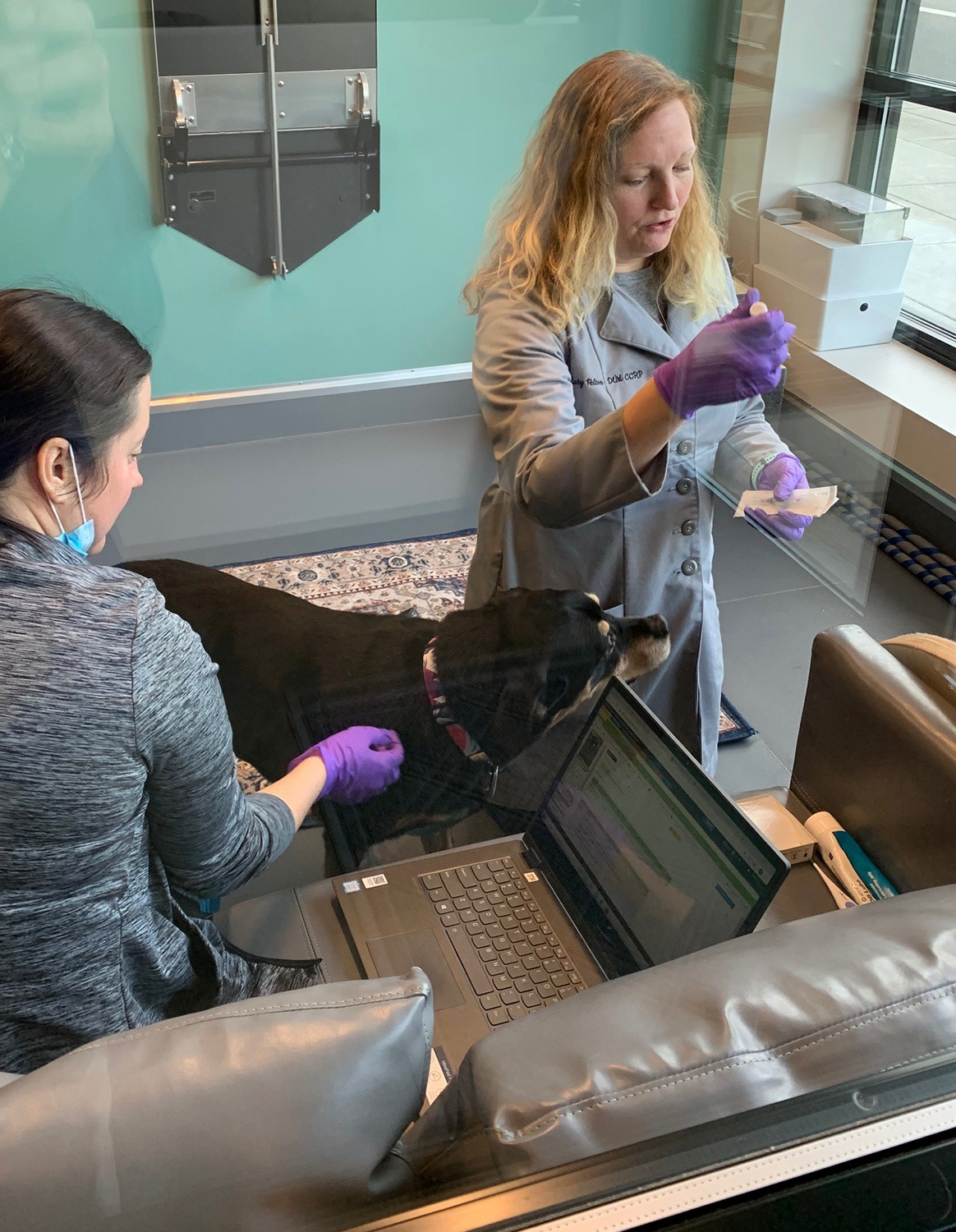
“Many clients are super glad to be close with their pets now,” Felton said. “They can’t be as close with family that lives in another town, or with coworkers. They’re distant from them, from their friends, but they can be extra close with their pets right now.”
Felton has also seen a recent surge of new pet owners who have decided to get their first puppy or kitten in recent months.
“There’s been a huge wave of new adoptions … because many people look at their situation and say, ‘I’m going to be home for months on end here, this is a perfect time to get a puppy and raise a puppy,’” Felton said. “So there’s been a ton of puppy 101 and kitten 101 that’s happening as well.”
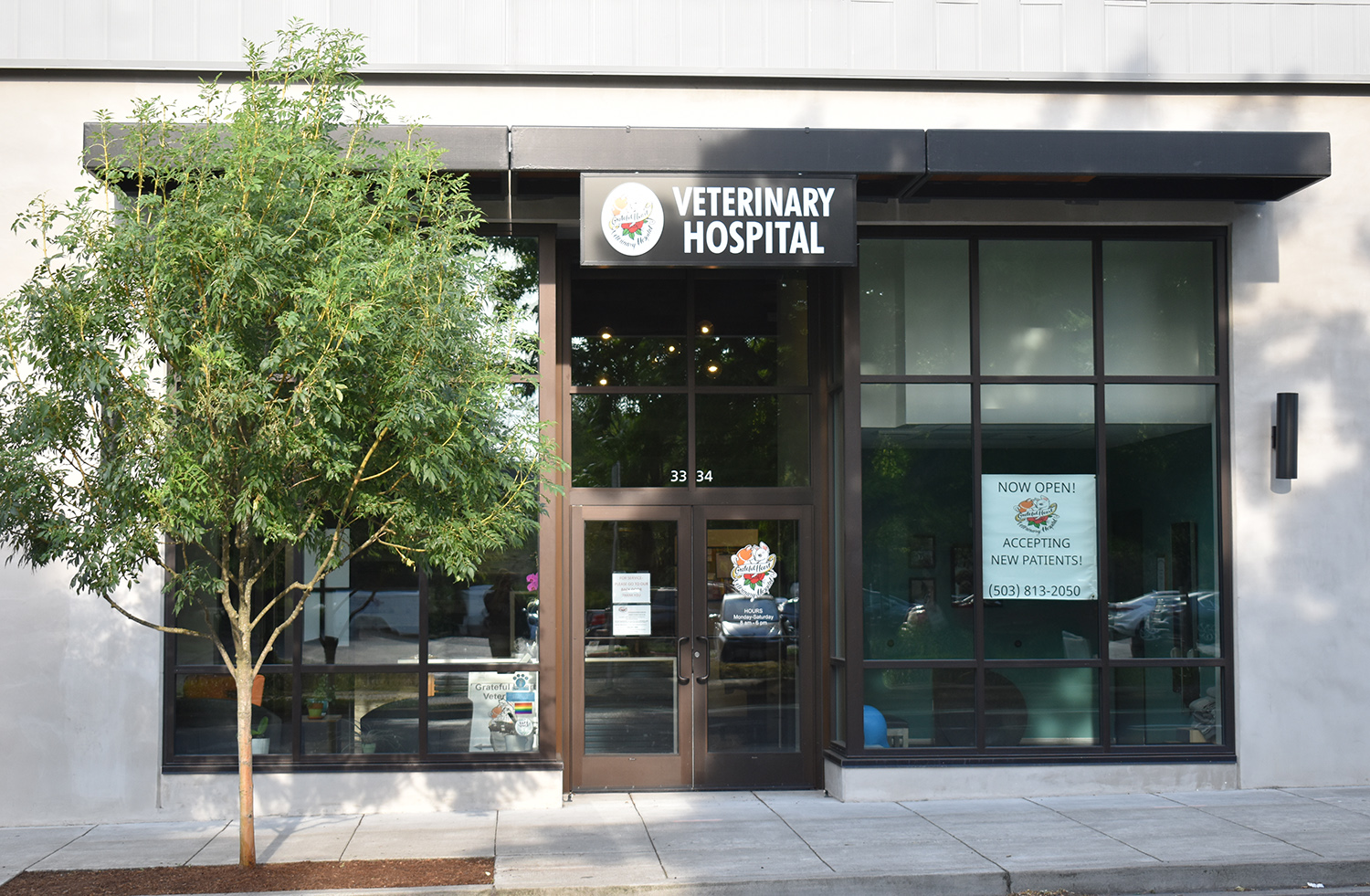
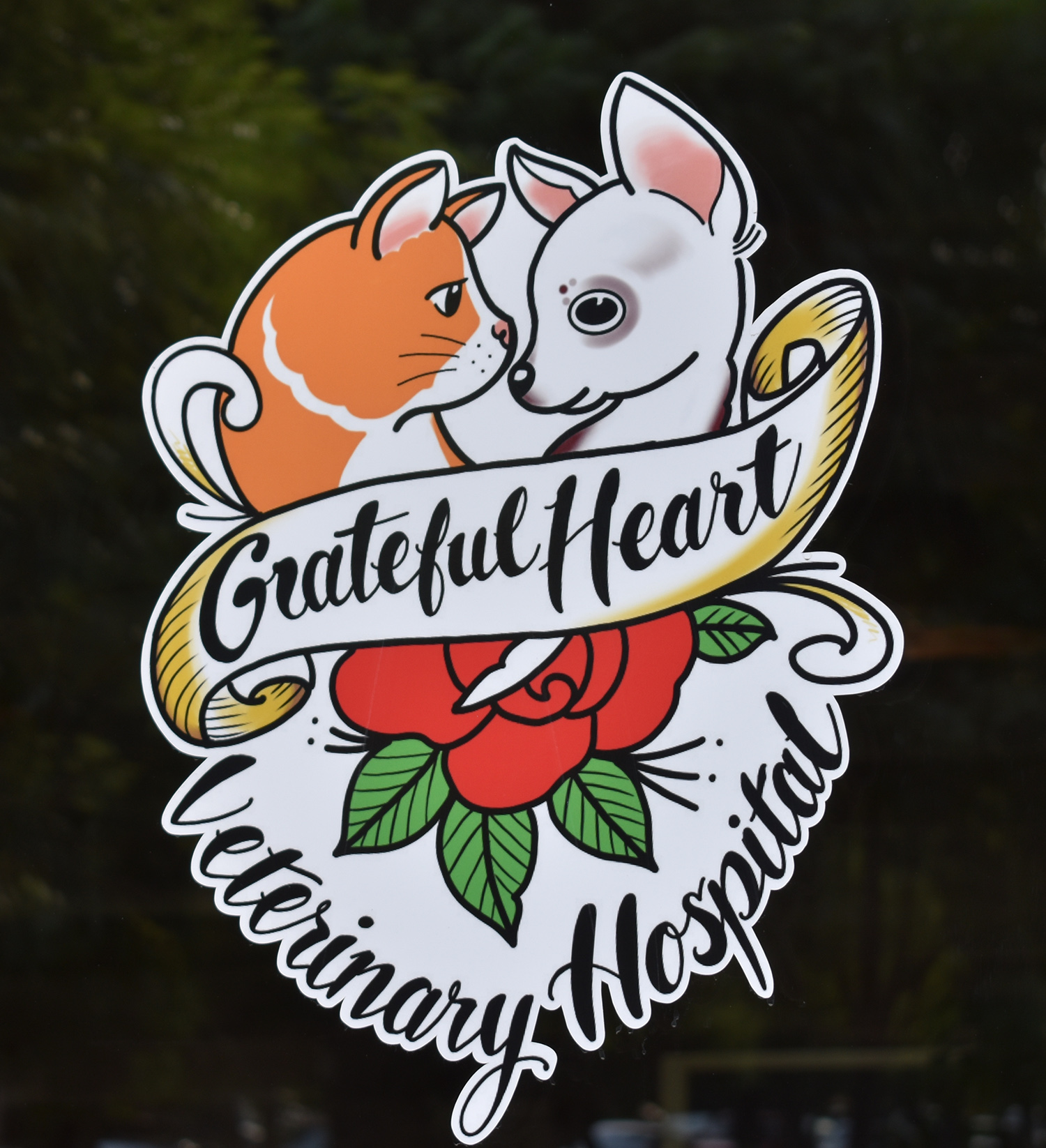
However, Felton’s job doesn’t just require her to be there when new pets are added to the family, but also when old ones are departing. She recently had a client lose two pets during the pandemic.
“I’m a hugger, I’m a crier with my clients,” Felton said. “The inability to just embrace a client that’s gone through not just one, but two losses during this time of all this distance and isolation …I want to give that hug really bad. I almost need it as badly as she does.”
Along with the added struggles brought on by the pandemic, Felton acknowledged the mental health difficulties in the veterinary field.
“It’s a caretaking profession, many of us get into it because we want to save every single creature and you can’t save them all.”
Despite long and emotionally draining days, it’s Felton’s 12-year-old greyhound, Beatrice Fern, that reminds her to take a step back.
“It can be tempting to get home and just crack the laptop open and keep working,” Felton said. “And she [Beatrice] says, ‘No, remember? It’s time for us to get out and feel human again.’”
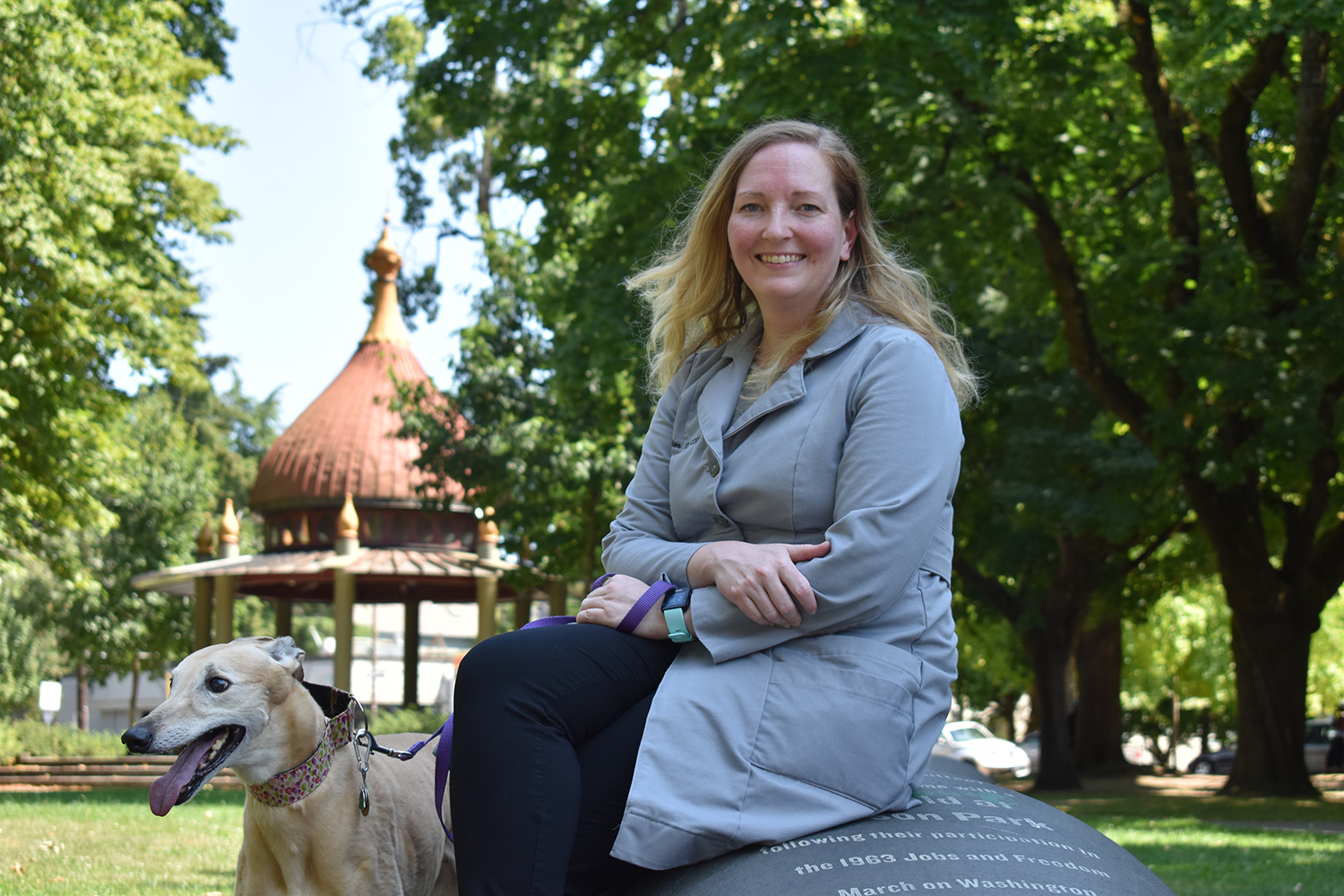
About NextGenRadio
The Next Generation Radio Project is a week-long digital journalism training project designed to give competitively selected participants, who are interested in radio and journalism, the skills and opportunity to report and produce their own multimedia story. Those chosen for the project are paired with a professional journalist who serves as their mentor.
This edition of the #NPRNextGenRadio project was produced in collaboration with Oregon Public Broadcasting in July 2020.
Acknowledgements
Our audio engineer is Patrice Mondragon.
Our illustrators are Yunyi Dai and Ard Su.
Our visuals editor is Erica Lee.
Our web producer is Robert Boos.
Our managing editor is Traci Tong.
Our digital editor is Joanne Griffith.
Special thanks to our journalist-mentors this week:
- Tiffany Camhi, Host/Reporter, OPB, Portland, OR;
- Gabriela Saldivia, Producer, NPR One, Washington, DC;
- Jane Greenhalgh, Senior Producer/Editor, Science Desk, NPR, Portland, OR;
- Liz Miller, Reporter, OPB, Portland, OR;
- Donald Orr, General Assignment, OPB, Portland, OR.
NPR’s Next Generation Radio program is directed by its founder, Doug Mitchell.
